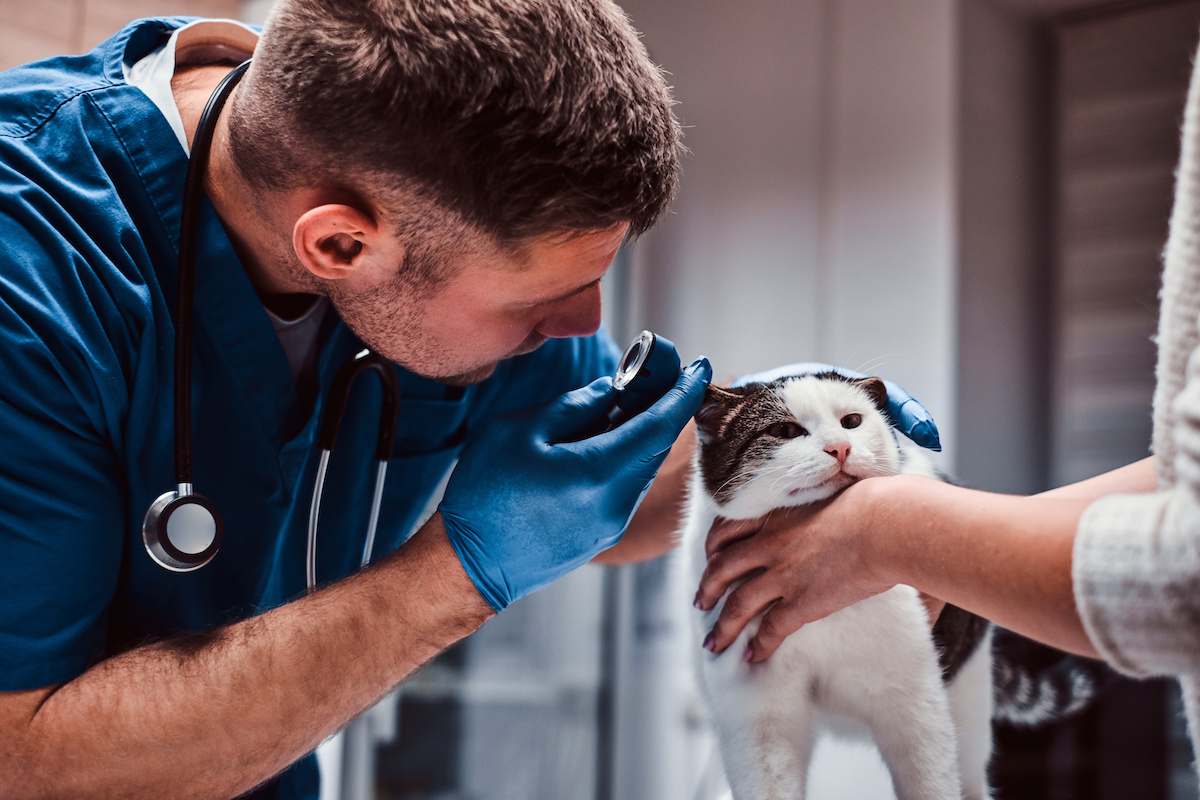How Veterinarian Greensburg Is Raising the Criterion for Animal Medical Care
Expert Tips for Pet Nutrition From a Veterinarian
Recognizing the dietary requirements of family pets is essential for their general health and longevity (Veterinarian Greensburg). With the multitude of animal food choices readily available, pet proprietors usually discover themselves navigating a landscape raging with misinformation and myths.
Comprehending Nutritional Demands
Understanding the nutritional requirements of family pets is fundamental to guaranteeing their total health and wellness and well-being. Just like human beings, pet dogs require a well balanced diet plan that gives crucial nutrients, including proteins, fats, vitamins, minerals, and carbs. These nutrients play vital duties in different bodily functions, such as energy manufacturing, immune action, and tissue repair service.
They are made up of amino acids, some of which are vital and have to be obtained from food. Carbohydrates offer as a key power resource and can sustain gastrointestinal health and wellness when they consist of fiber.
Nutrients are required for metabolic procedures and keeping overall wellness. Each family pet might have special requirements based on aspects such as age, type, task degree, and health standing. It is vital to seek advice from a veterinarian to establish the details dietary demands tailored to your pet's specific requirements, ensuring they receive ideal nutrition throughout their life phases. Correct understanding and interest to these nutritional components can dramatically contribute to an animal's long life and high quality of life.

Choosing the Right Food
Choosing the proper food for animals is a crucial facet of fulfilling their dietary requirements. It is vital to think about aspects such as age, health and wellness, type, and size condition when selecting an animal food. Young puppies and kitties need solutions that sustain growth and growth, while grown-up pets need well balanced diet regimens that maintain their health and wellness. Elderly family pets might benefit from foods designed to address age-related concerns, such as joint health or weight administration.
When examining pet dog food alternatives, seek items that fulfill the Organization of American Feed Control Officials (AAFCO) requirements, which guarantee that the food offers full and balanced nourishment. Active ingredients should be premium, with real meat as the key source of protein. Prevent foods with extreme fillers, fabricated ingredients, or by-products, as these can diminish the total dietary value.
Consulting with a vet can offer tailored suggestions based upon your pet's specific requirements. In addition, transitioning in between foods ought to be done gradually to stay clear of intestinal distress. By taking these actions, family pet owners can guarantee that they are giving their furry friends with the very best feasible nourishment for a healthy and pleased life.
Typical Misconceptions About Pet Food
Debunking misunderstandings bordering pet food is critical for making sure optimum nutrition for our hairy buddies. One widespread misconception is that all grain-free diet regimens are premium for animals. In truth, grains can supply necessary nutrients and are not naturally hazardous. A balanced diet plan can include grains, given they are not creating any type of intolerances or allergies.

Additionally, several family pet proprietors believe that "costs" or "natural" labels ensure greater quality. Nonetheless, these terms are usually uncontrolled and do not necessarily show remarkable nutritional worth. It is crucial to inspect ingredient lists and dietary profiles rather.
Special Factors To Consider for Various Types
When it concerns pet nourishment, special factors to consider need to be considered for various types, as each breed can have unique nutritional demands and sensitivities. As an example, large types such as Excellent Danes and Saint Bernards are vulnerable to bone and joint problems and may profit from diet regimens developed to sustain joint wellness, usually featuring ingredients like glucosamine and omega fatty acids. Conversely, tiny types like Chihuahuas may require higher calorie densities to meet their energy levels, necessitating formulations that are abundant in nutrients however lower in mass.
Additionally, specific types might be inclined to particular health concerns, such as food allergies or sensitivities. Breeds like Labrador Retrievers might struggle with excessive weight, needing mindful portion control and a balanced diet to preserve a healthy weight. On the other hand, breeds such as Dachshunds might be a lot more at risk to back problems, triggering a need for diets that advertise spinal health and wellness and weight monitoring.
Inevitably, recognizing these breed-specific dietary requirements is vital for pet owners. Consulting with a veterinarian can help in picking one of the most proper diet regimen tailored to an individual family pet's health and wellness, age, and breed condition, guaranteeing optimum nourishment and health.
Significance of Regular Veterinary Check-Ups
Recognizing the unique nutritional requirements of different breeds is just one aspect of responsible family pet ownership; routine vet check-ups play an essential function in preserving overall health and wellness. These check-ups are important for early discovery of health and wellness problems, making sure that any kind of possible problems go to my site are attended to prior to they come to be severe. Normal brows through enable vets to monitor your animal's weight, oral health and wellness, and important indications, which are important indicators of total health.
Additionally, regular exams enable vets to offer customized dietary guidance based upon your animal's private health and wellness status - Animal Chiropractor Greensburg. As pets age, their dietary needs might transform, and adjustments may be necessary to avoid excessive weight or nutrient shortages. Preventative treatment, including vaccinations and parasite control, is also a fundamental element of these check outs, safeguarding your pet from various diseases
In addition to health examinations, these consultations provide an exceptional chance for pet owners to discuss behavioral adjustments or problems concerning their pet dog's eating habits. By prioritizing normal veterinary check-ups, family pet owners can make sure a longer, much healthier life for their fuzzy buddies, inevitably boosting their lifestyle.
Conclusion
In conclusion, guaranteeing optimal family pet nutrition calls for an extensive understanding of private dietary requirements, ideal food option, and understanding of prevalent misconceptions. Unique factors to consider for numerous breeds need to be represented, and normal veterinary check-ups play a crucial role in keeping track of wellness and dietary changes. Complying with AAFCO standards and seeking advice from with vets before making dietary modifications will enhance the redirected here well-being of pet dogs, inevitably adding to their durability and high quality of life.
With the plethora of pet dog food alternatives available, pet owners often discover themselves navigating a landscape raging with false information and misconceptions. Each pet dog might have distinct demands based on variables such as age, type, activity level, and health and wellness standing. It is necessary to take into consideration variables such as age, wellness, size, and breed condition when choosing a family pet food. Senior family pets may profit from foods made to resolve age-related issues, such as joint health or weight monitoring.
Recognizing the one-of-a-kind dietary needs of different types is only one element of accountable pet ownership; routine veterinary exams play a vital duty in keeping general health.